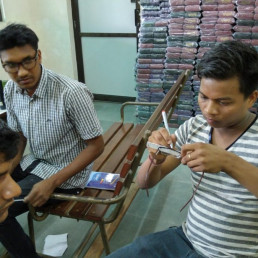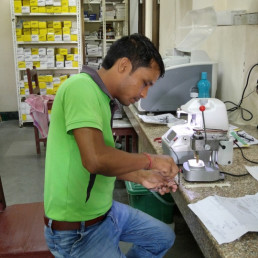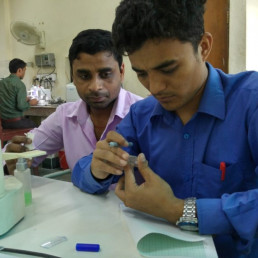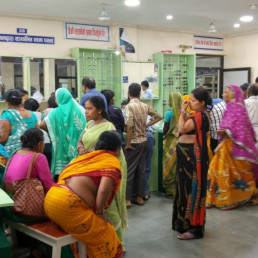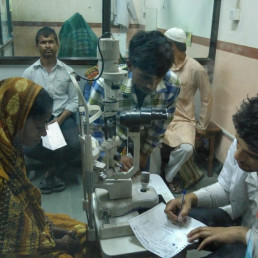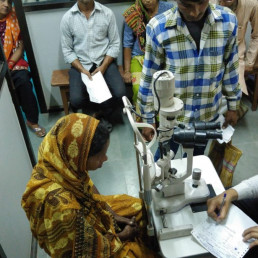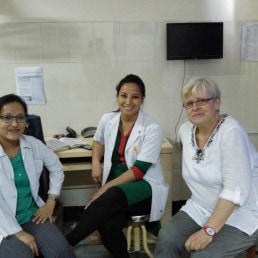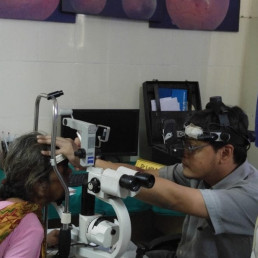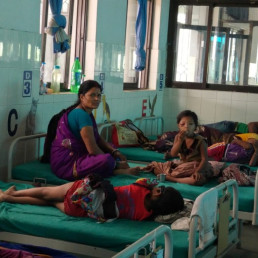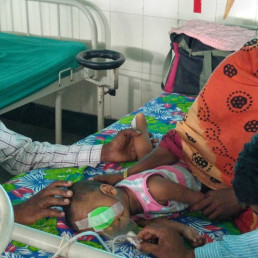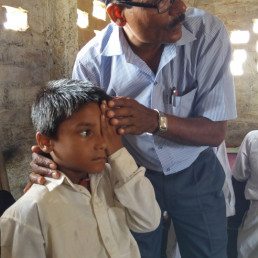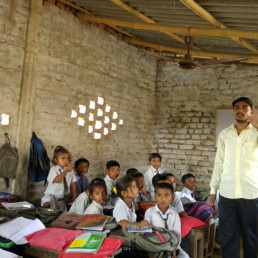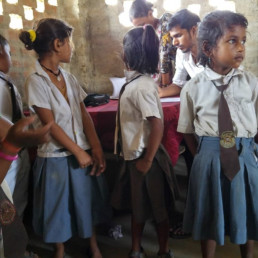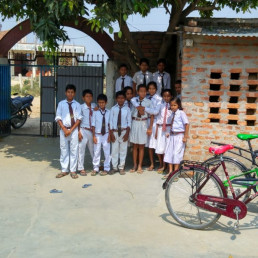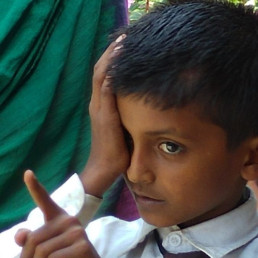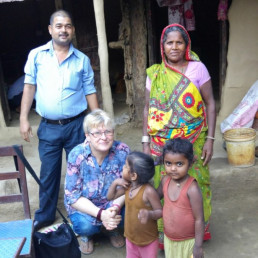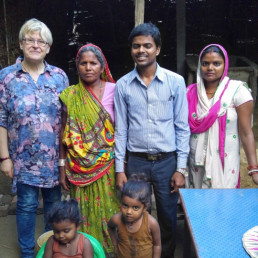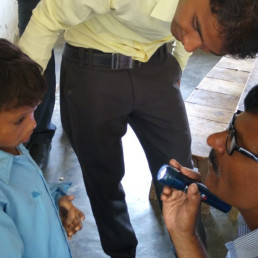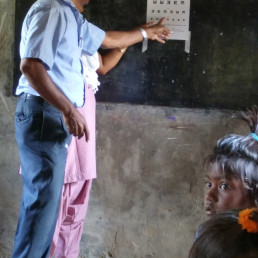When Brigitte Nachtmann-Leitl travels to Nepal she doesn’t go in search of spiritual enlightenment, like so many others do. She doesn’t plan to conquer nearby Mount Everest either. Instead, the qualified optician spends the majority of her annual holidays 6,000 kilometres from home in order to pass on her knowledge about glasses, eyes and sight to locals who are eager to learn.
Many people travelling to Nepal have only one goal in mind: to scale the world’s highest mountain. To do this, it helps enormously to actually be able to see it. This is a luxury which we take for granted far too often and which many people in Nepal are denied: eye diseases present a huge problem in poor countries like Nepal and young children in particular suffer greatly. Every year, 500,000 children across the world lose their sight due to vitamin A deficiency alone.
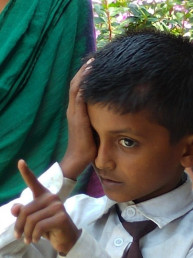
Poor nutrition and poor hygiene standards are one thing, but when the need for further ocular medicinal care is added into the equation, the prospects for those affected look – for want of a better word – dark. When children born with cataracts do not immediately get the required operation, they will most probably never be able to acquire the ability to see. However, with an operation, their chances of recovery are not bad at all – in Germany at least. Or in the USA. Or in any other industrialised western nation with an efficient health care system. Sustainably reducing the great difference in the quality of care given by ophthalmologists and opticians is a cause very close to the heart of Vision for the World e.V.. For this reason, the organisation sought the support of uvex’s eye specialists in 2012.
Nepal, today, four years later
In May 2016, Brigitte Nachtmann-Leitl visited Southern Nepal for the fourth time in order to impart basic ophthalmic knowledge to workers in the clinics of the Eastern Regional Eye Care Project in Biratnagar and Lahan. Ms Nachtmann-Leitl explains: “In Nepal there is no training to match the standard that we receive in our optometry trade back home. As such, glasses are sold and made in clinics without any knowledge of optometry.” In many cases, this naturally causes more problems than it solves.
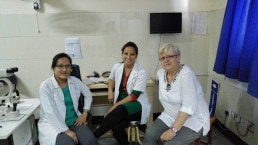
By now everyone has got to know each other and Brigitte’s selfless efforts are clearly bearing fruit already: in the first few years, even simple optical measurement instruments such as a lensometer donated from Germany were ignored and left in the packaging. Today, however, the optical specialists enjoy increasingly proficient training and are confident in handling modern tools such as lens grinders on their own. It originally seemed that Nachtmann-Leitl’s efforts would amount to nothing: when Vision for the World e.V. was looking for volunteers for the project among uvex’s ranks in 2012, the decision between her and another colleague who was also interested came down to the toss of a coin. Nachtmann-Leitl lost. However, because her colleague was often abroad for work anyway she graciously withdrew, much to Nachtmann-Leitl’s delight. She had inherited the travel bug from her well-travelled uncle many years before who enthralled the young Brigitte in waxing lyrical with his tales of Nepal and Kathmandu which he described as “the most chaotic city in the world”.
protecting people
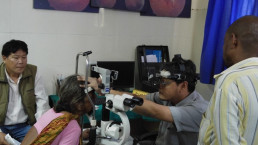
Along with the prospect of finally being able to put into practice travel plans which had long been in the pipeline, it was above all the uvex philosophy of protecting people which ultimately motivated Ms Nachtmann-Leitl. It is something which drives her year in, year out. Brigitte still stands up for the safety of clients and colleagues in her day-to-day work as an optician and as an employee representative. The strong loyalty to her employer definitely works both ways: uvex originally devised the campaign and for years bore the costs for flights and vaccinations. The company also regularly contributes by donating to Vision for the World e.V. projects via The Rainer Winter Foundation. Nachtmann-Leitl explains quite humbly: “My contribution is simply my holiday and leisure time.”
We think that covers just about everything, Brigitte Nachtmann-Leitl! Thank you for your tireless service worlds away from our daily life with its sheltered eye care and for your willingness to answer our questions.
Here are a few more impressions from our colleague’s travels in a region which is forced to combat poverty, climate change, environmental pollution and natural catastrophes.
